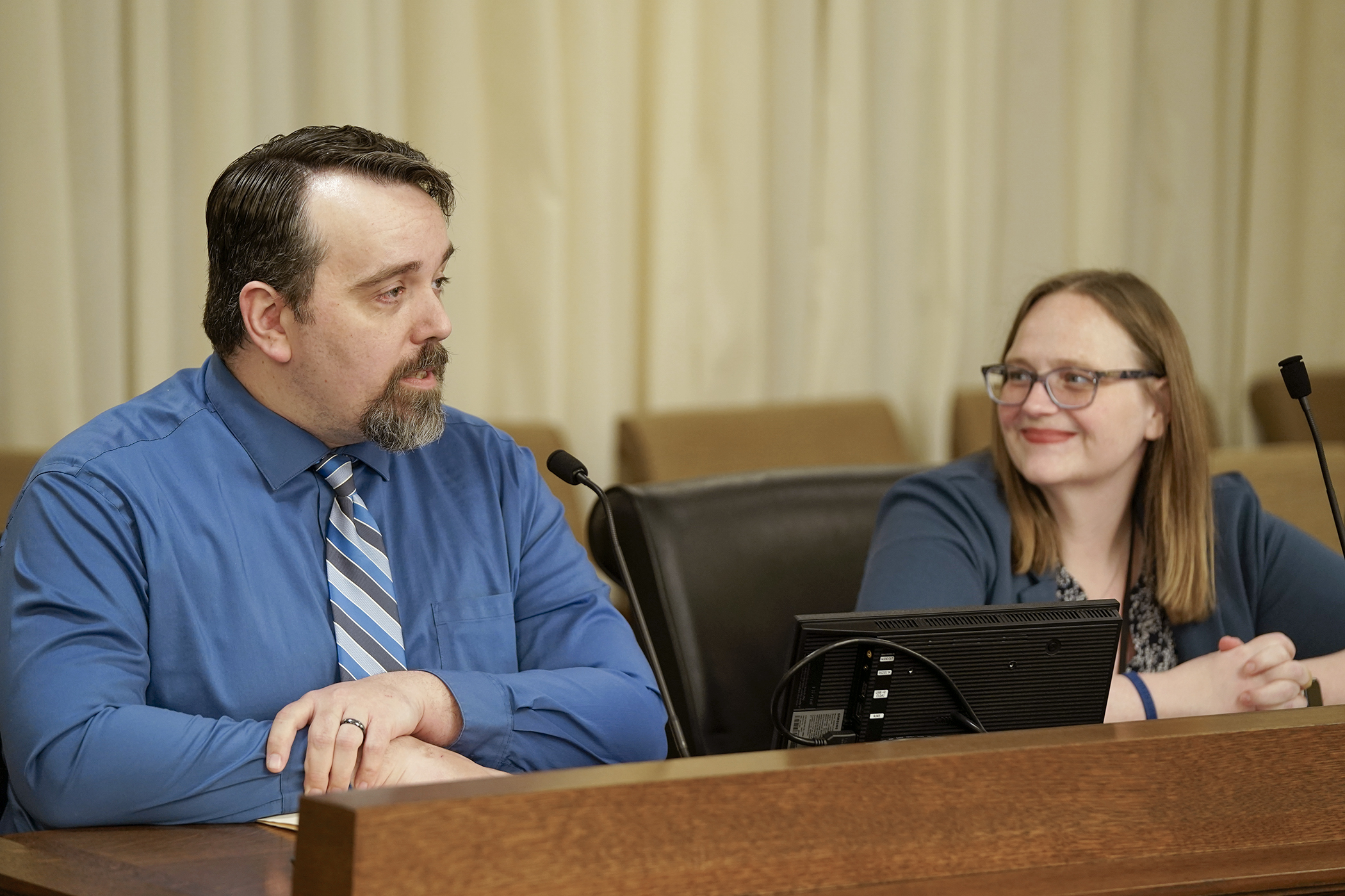Program seeks $1.5 million to help bridge health care workforce gap

One industry with consistent job openings is health care, with roles like certified nursing assistants, phlebotomists and registered nurses always in demand.
However, someone working one, two or three low-wage part-time jobs can’t easily access the resources to train for those positions.
A program helping people cross that gap seeks continued state funding.
Sponsored by Rep. Kim Hicks (DFL-Rochester), HF661 would again appropriate $1.5 million in the upcoming biennium for the Bridges to Healthcare program. It received that amount in the current biennial budget.
Funds would be used to “provide career education, wraparound support services, and job skills training in high-demand health care fields to low-income parents, nonnative speakers of English, and other hard-to-train individuals,” per the bill language.
The bill, as amended, was laid over by the House Workforce, Labor, and Economic Development Finance and Policy Committee Tuesday.
Bridges to Healthcare participants have received a wide range of support, including help paying for tuition, books, scrubs, shoes, gas and diapers.
Administered by the Workforce Development Board of Southeast Minnesota, Bridges to Healthcare began in 2011 in Rochester and has expanded to eight counties in southeastern Minnesota. Partners include the Mayo Clinic, area technical and community colleges, and adult education programs.
Kyle Mullen, adult services director at Workforce Development, Inc., describes it as a win-win-win situation. Program participants get on a pathway to self-sufficiency, the health care industry gets help addressing its workforce shortage, and communities receive an economic boost.
Of the more than 300 students currently enrolled, 45% identify as immigrants or refugees and 76% are living at or below 200% of the federal poverty level. Most graduates continue their education, and 60% are going straight into the long-term workforce, Mullen said.
Rep. Patricia Mueller (R-Austin) said the program is an asset to southeast Minnesota. “The only way we are going to be able to expand our workforce and kind of negate crushing debt we see with our students is through these partnerships.”
Related Articles
Search Session Daily
Advanced Search OptionsPriority Dailies
Stable budget outlook projects $3.7 billion surplus now, no deficit in next biennium
By Lisa Kaczke The projected surplus for Fiscal Years 2026-27 is now higher than it was in the November estimate, and no deficit is projected for the next biennium.
“Minnesota’s budge...
The projected surplus for Fiscal Years 2026-27 is now higher than it was in the November estimate, and no deficit is projected for the next biennium.
“Minnesota’s budge...
Legislative leaders set 2026 committee deadlines
By Lisa Kaczke Legislative leaders on Tuesday officially set the timeline for getting bills through the committee process during the upcoming 2026 session.
Here are the three deadlines for...
Legislative leaders on Tuesday officially set the timeline for getting bills through the committee process during the upcoming 2026 session.
Here are the three deadlines for...